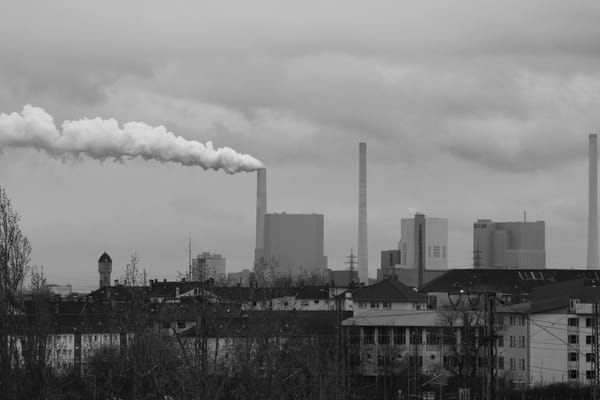Join the club

Every major climate agreement, from the 1997 Kyoto Protocol to the 2015 Paris Agreement, relies on disparate states voluntarily taking action to reduce their emissions to collectively help tackle climate change. Although a significant improvement on the mechanisms setup under Kyoto, the Paris climate accord does not confer any costs on countries that fail to meet their obligations.
As both Trump-led US-administrations have demonstrated, countries can, in extremis, simply withdraw from the agreement altogether without penalty. The outcome doesn't even have to be as stark as outright withdrawal. Once members perceive others as free-riding on the actions of more committed countries, the risk that the agreement unravels increases: lower emission reduction targets beget a rollback in ambition and climate action by others, and so on. In game theory terminology, individual countries have an incentive to defect on agreements involving public goods, resulting in beggar-thy-neighbour policies.
William Nordhaus, the Nobel prize winning economist, has been one of the most vocal critics of the voluntary architecture underpinning international climate agreements, first making the case in 2015 (before the Paris COP) that governments should pivot to an arrangement with much stronger incentives to participate: the Climate Club.
To become a member, Nordhaus explains, governments would agree to implement climate policies that produce a minimum carbon price; whether through a carbon tax, cap-and-trade, or some hybrid model, and that it would gradually increase over time. The second important feature of the Climate Club (and the major departure from existing climate agreements) is that non-members would be penalised in some way, such that it is in the national interest of every country to participate, and it is in no-one's interest to defect and free-ride (see Free rider: Carbon border levies could trump US withdrawal from Paris).
Rather than mess about with taxing the carbon content of imports, which Nordhaus argued would be ineffective and complicated, the economist called for a uniform percentage tariff to be placed on all imports into the Climate Club region from non-members. Nordhaus found that a high participation rate can be achieved even with relatively low tariff rates and carbon prices. However, once the carbon price increases above $50 per tonne CO2 (~$68 in todays money), high penalty rates are required to induce participation, although after a certain point, countries are likely to decide to pay the tariff instead.
I'm sure the World Trade Organisation (WTO) would have something to say about it, but would anyone bother to listen? Anyway, I digress. A decade on from Nordhaus' original paper, could the Climate Club concept finally see the light of day as COP30 enters its final day and concerns over free-riding never far from the minds of negotiators? Let's dive in.
Read the rest of this article with a 30-day free trial*
*and get access to the entire archive!





